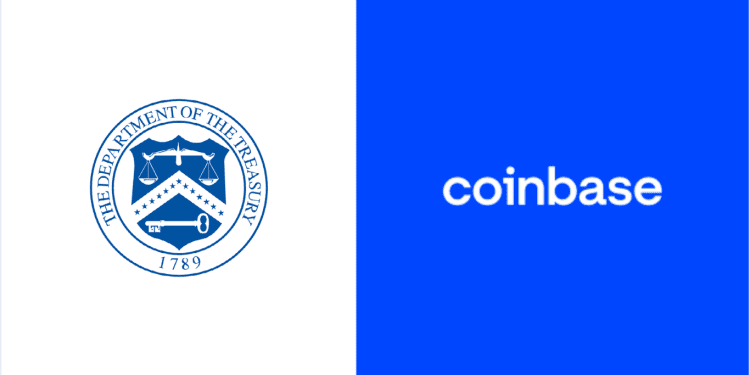Coinbase, the largest, centralized cryptocurrency exchange in the U.S., is funding a lawsuit filed against the U.S. Treasury Department’s Office of Foreign Assets Control (OFAC) by six people over the Tornado Cash sanctions. While defending its decision to sanction the mixing service, the Treasury Department says that the platform allowed illicit actors such as North Korean actors to launder billions of dollars worth of cryptocurrencies.
We Used Tornado Cash for Legitimate Purposes – Plaintiffs
In a lawsuit filed on Thursday in a U.S district court in Texas, six plaintiffs of Tornado Cash accused the Treasury Department of violating their constitutional rights to free speech and transcending its authority in sanctioning the cryptocurrency service.
However, the mixing services such as Tornado Cash are used to obfuscate crypto transactions, which, while anonymous, can be easily traced. The Treasury Department stated that North Korean hackers had used this service to launder more than $7 billion of digital currencies in the past three years.
Tornado Cash is a decentralized network built on the Ethereum blockchain that ensures privacy by allowing its individuals to deposit assets from one crypto address and withdraw them using another crypto address.
The six individuals are Coinbase employees Tyler Almeida and Nate Welch, former Amazon engineer Joseph Van Loon, Ethereum proponent and angel investor Alex Fisher, GridPlus engineer Kevin Vitale, and Prysmatic Labs co-founder Preston Van Loon.
The plaintiffs claim that they used Tornado Cash for legitimate purposes and that the sanctions have financially damaged them. For example, Tyler Almeida, a California Security analyst at Coinbase, claims to have used Tornado Cash to make anonymous donations to support Ukraine. He added that the U.S. sanctions on the service hindered his right to donate and express himself under the First Amendment.
He is among the two Coinbase employees putting their names on the lawsuit. However, Coinbase CEO Brian Armstrong has objected to the sanctions on Tornado Cash, and his company is footing the plaintiffs’ bills.
In a tweet, Coinbase chief legal officer Paul Grewal said, “This morning, Brian Armstrong shared why Coinbase is funding and supporting a challenge by six individuals (including two CB employees) against the Treasury Department and OFAC’s novel sanctions of open source software associated with Tornado Cash.” He added:
“This legal challenge is about how OFAC exceeded the authority of the congress, and the President granted it in sanctioning open source technology, rather than sanctioning the bad actors who used it or the property of those bad actors.”
Paul Grewal also said that the crypto exchange firm believes the government overstepped its authority by placing sanctions on Tornado Cash’s code.
Another user Preston Van Loon, a prominent Ethereum figure, claimed he could not access thousands of dollars worth of ETH deposited with Tornado Cash. Van also stated:
“I did not take this decision lightly. Code is speech, and free speech is a constitutional right worth protecting.”
Sanctions Suppress Freedom of Expression
The decision by the Treasury Department to place sanctions on code used by Tornado Cash has raised concerns in the crypto industry and the broader software development community, who say the move is a threat to freedom of expression.
However, the Treasury imposed sanctions- violations that bring severe forfeit on people and companies, which were employed during the reign of President Barack Obama as a way to fight sophisticated financial tools used by terrorists to launder money. But in the Tornado case, the essence of the sanctions is not a specific entity but a series of smart contracts.
However, the Coinbase employees and Ethereum backers are not looking for damages but rather a ruling affirming that the Treasury Department overstepped its authority under the Administrative Procedure.
The complaint said:
“None of the plaintiffs is a terrorist. None supports terrorism or state-sponsored illegal activity. None launder sums of money. Each is an American who wants to engage in entirely lawful activity in private.”
Meanwhile, Tornado Cash users cannot access either the ETH tokens they placed in its smart contracts or the privacy service it provides while waiting for the decision to arrive.














